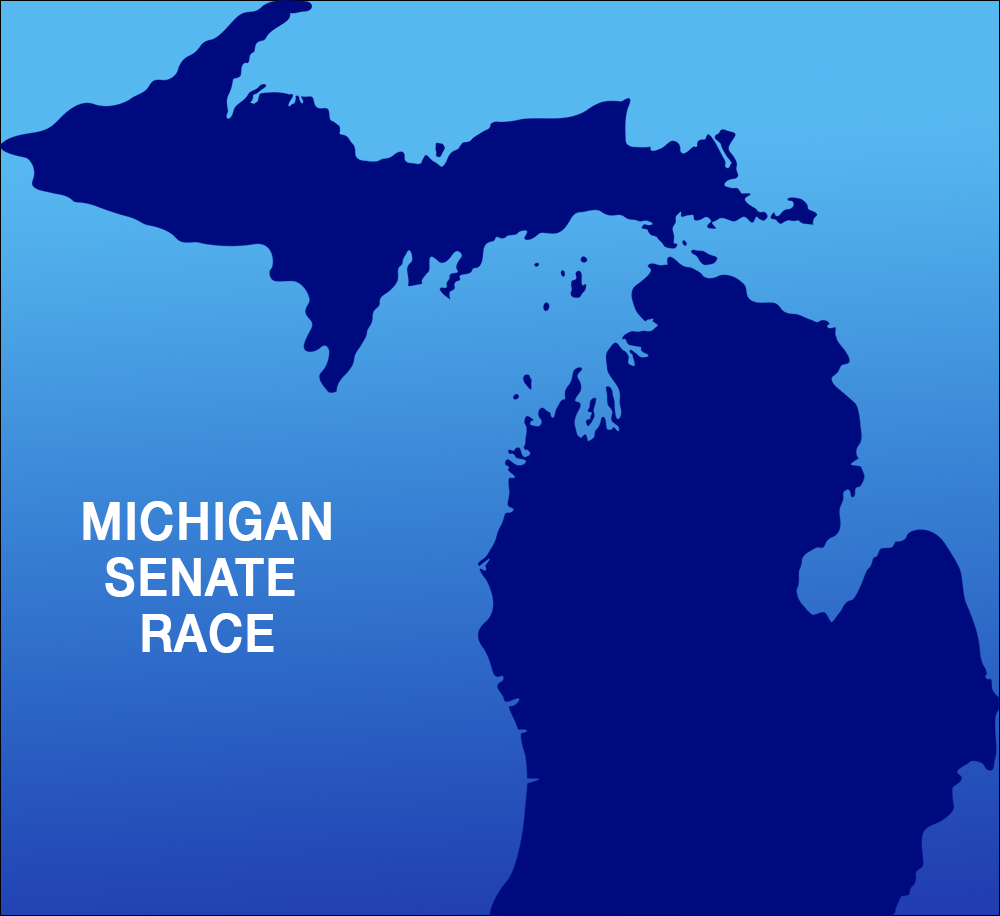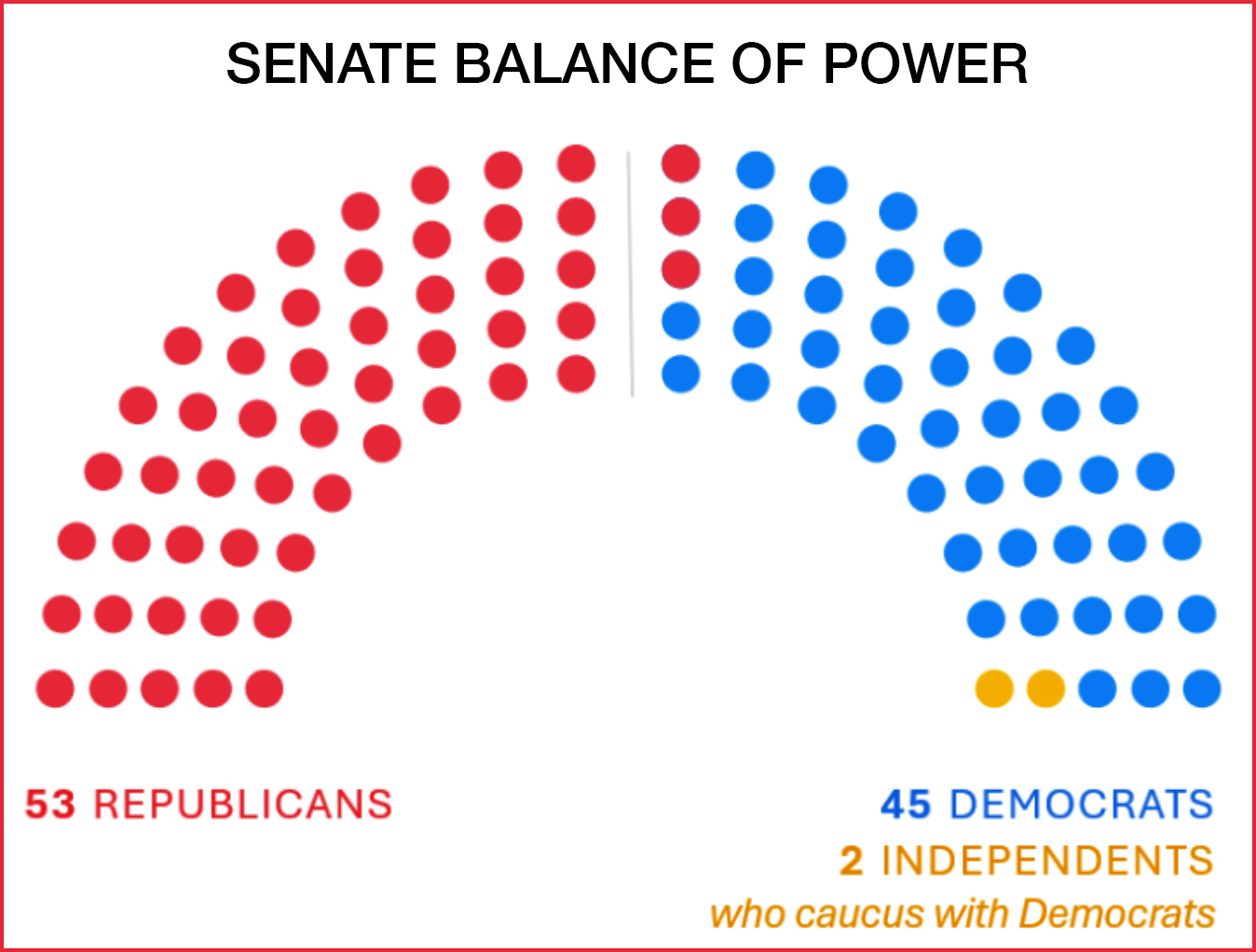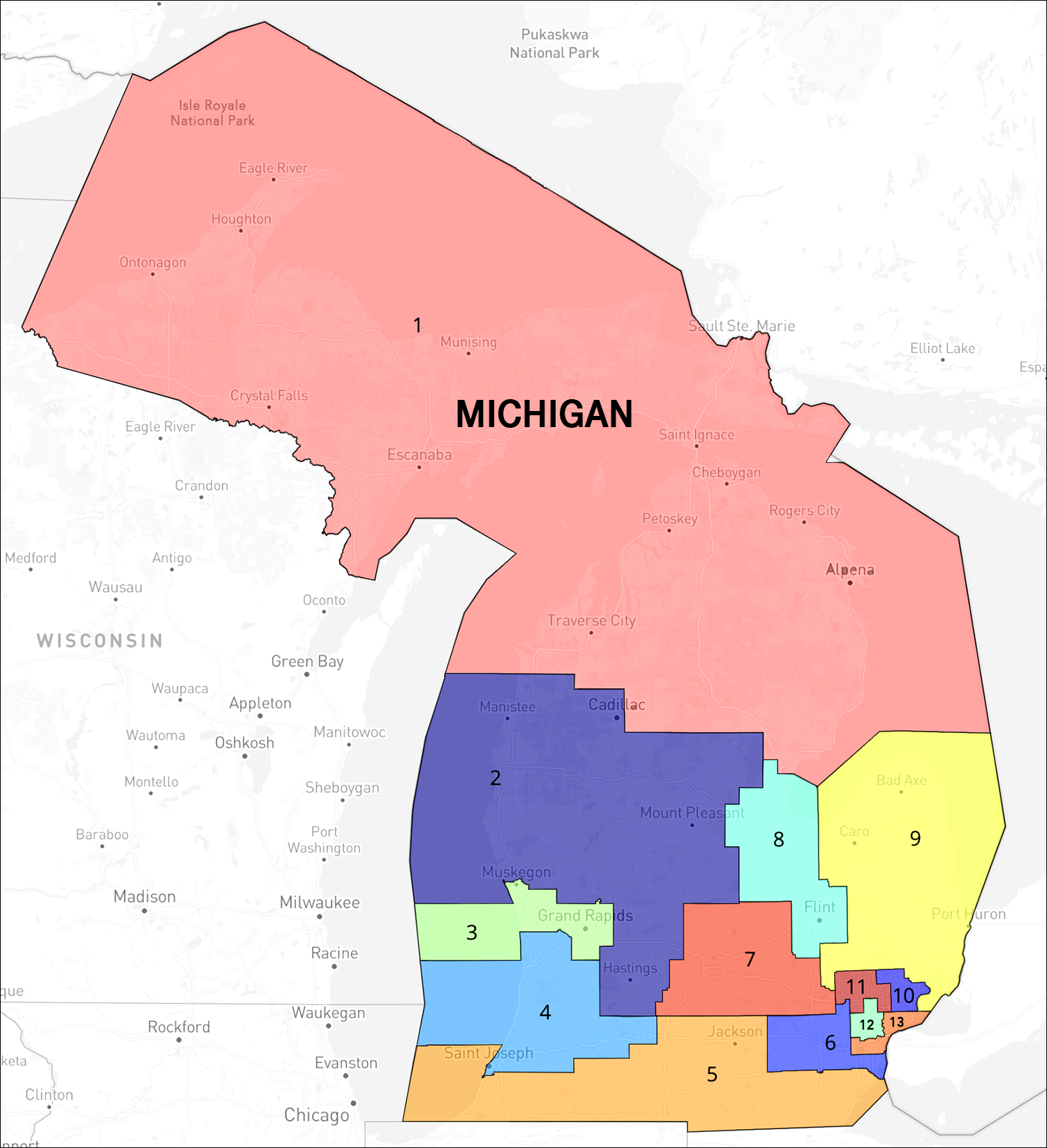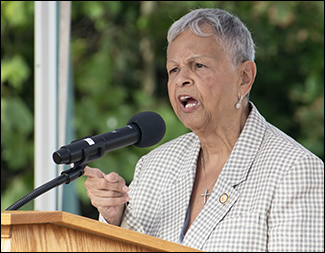
By Jim Ellis — Tuesday, February 3, 2026
Senate
A new Emerson College poll of the Michigan Senate race again suggests that we will see another photo finish in the 2026 campaign.
The latest EC poll (Jan. 24-25; 1,000 likely Michigan voters; 491 likely Democratic primary voters; multiple sampling techniques) sees a change in both the Democratic primary and the general election.
For the first time, Emerson projects state Sen. Mallory McMorrow (D-Royal Oak) taking the lead over Rep. Haley Stevens (D-Birmingham) and former Wayne County Health Director Abdul El-Sayed in the party primary. According to the Emerson ballot test result, Sen. McMorrow posts a 22-17-16 percent advantage over Rep. Stevens and Dr. El-Sayed.
This is the first poll that found someone other than Rep. Stevens holding the Democratic lead, though three of the other five polls released since early May have detected all three candidates polling under 30 percent support. Therefore, despite the projected change at the leader level, this race remains a tight, three-way toss-up.
The Michigan Senate seat is open because two-term incumbent Sen. Gary Peters (D) chose not to seek a third term. He likely would have been favored for re-election.
The general election polling is equally close. Likely Republican nominee Mike Rogers, the former Congressman who came within three-tenths of a percentage point of upsetting current Sen. Elissa Slotkin (D) in the 2024 general election, will be a formidable November contender. He has led all three of the Democratic candidates at one time or another in early polling. Rogers slightly trails Rep. Stevens in most polls but leads Sen. McMorrow and Dr. El-Sayed in almost all isolated pairings.
In the latest Emerson poll, Rep. Stevens tops Rogers, 47-42 percent, and Sen. McMorrow would lead him 46-43 percent, while El-Sayed and Rogers are tied at 43 percent support.
It is interesting to see the general election sample finding Stevens further ahead of Rogers than McMorrow in the same poll where the Democratic segment favored the latter contender. This means that Rep. Stevens is attracting a better share of the non-affiliated vote than is Sen. McMorrow when paired individually with the Republican former Congressman.
Looking at the 2024 polling, we again see a Republican underpoll when compared to the final result. Such a pattern has been present in a number of states and was certainly the case in President Trump’s three elections.
In the Michigan ’24 Senate contest, 82 public polls were released after the August primary. In those, Rogers led in only three. While he didn’t win the race, he clearly performed better than projected.
Of the four organizations that tracked polling in the 2024 election, Real Clear Politics, the Five-Thirty-Eight data organization, which is no longer in existence, 270 to Win, and Decision Desk Headquarters, all found Slotkin leading by a larger margin than her actual victory percentage. Such was true regardless of whether all the post-primary polls were included or just those from late October to Election Day.
The Slotkin average lead ranged from a high of 4.1 to a low of 2.3 percentage points, remembering that her victory spread was just 0.3. In terms of raw numbers, Sen. Slotkin won the race by only 19,006 votes from more than 5.58 million ballots cast.
Therefore, if we surmise that a similar pattern might occur in 2026, then this race is likely to be decided by just a few votes irrespective of which Democrat wins the party nomination. The political climate at the time of the election notwithstanding, Rogers remains in prime position to record what many would still consider an upset victory.
Looking at the national Senate picture, the Michigan race must be rated as the Republicans’ best opportunity to convert a current Democratic seat, with Georgia (opposite Sen. Jon Ossoff), and New Hampshire (open seat) also in play.
For the Democrats, the best opportunity is in North Carolina where the consensus party candidate, former Gov. Roy Cooper, has won six statewide elections. He leads former Republican National Committee chairman Michael Whatley in all polling, but North Carolina GOP candidates underpoll by a larger margin than in Michigan, and, for the first time in history Republicans exceed Democrats in registered party affiliation.
Democrats will also challenge Republican Senate seats in Maine (opposite Sen. Susan Collins), Alaska (against Sen. Dan Sullivan), and Ohio (challenging appointed Sen. Jon Husted). Their number one target, however, is North Carolina. In the others, right now the Republican incumbent should be considered at least a slight favorite.






